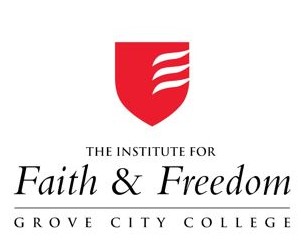Three Lessons from the Coronavirus Crisis

— By Diane Medved —
In the midst of the frightening coronavirus crisis, I saw so many heartening acts of kindness:
- Two neighbors brought folding chairs and sat in a driveway 10 feet from an elderly woman living alone, visiting in open air.
- The QFC and New Seasons markets provided special hours and smiles for seniors and the immune compromised.
- A strong Millennial collected Trader Joe’s orders, shopped and delivered to families with vulnerable residents, sparing them potential exposure.
Here in our beautiful neighborhood, as spring blooms gloriously, we’re acutely aware that we are among the most fortunate. We see tallies from around the world–the plague leaves no one unaffected. Orders to shelter in place forced us–and millions around the globe–to retreat behind walls.
Perhaps the most unique and encompassing event of our lifetimes has inspired both beneficient and atrocious behavior, from hoarding toilet paper and jacking the price of sanitizer, to individuals sewing masks for healthcare providers, and checking on suddenly-shut-ins. Here are three take-aways from this surreal experience that may yet infuse our futures with gratitude and positivity.
- We need each other. Confinement to our homes turned our attention to those intimately around us—or our yearning for loved ones we wish we could see.
About 28% of households consist of just one person, and the largest proportion of these are older Americans—the group most susceptible to the perils of COVID19. While “aging in place” is touted, remaining in a home without one’s spouse can, even in normal times, become a sad reminder of loss. Add that to urgent warnings in the news, and even the most active elders, afraid of the virus, may withdraw. I heard a heart-wrenching anecdote from a young woman headed into a market who’d turned toward a soft voice. Sitting in the driver’s seat of a parked vintage sedan, with the window rolled nearly to the top, was a frail, white-haired lady. She’d been softly calling, “Excuse me… Excuse me!” When my friend responded, the lady shoved a shopping list and $100 bill through the space in the window, saying, “would you please bring me these items? I’m afraid to get out of my car.”
If the woman hadn’t had the courage to wait in the parking lot for a harmless-looking helper, she might not have had any food. (Since then she receives groceries and regular calls about her welfare.)
While being alone needn’t bring loneliness, forced solitude, especially for weeks at a time, redefines the experience. Couples and even families can feel cramped and frustrated. It’s one thing to embrace the chance to organize photos and shred old files, but another to feel restrained from normal routines and cherished human contact. It’s consoling to FaceTime your grandkids (Hi, Julia and Emmy!) but these brief encounters only amplify a craving for real hugs. And parents suddenly responsible for kids’ educations while trying to conduct their own work from home face double the pressure.
As a psychologist specializing in marriage, I’ve been asked whether the involuntary proximity during this strange time encourages divorce. If the couple was already adversarial, then problems certainly can be exacerbated. But in most cases, couples feel “we’re in the same boat,” equally stuck at home, and equally blameless for the predicament. Much better to have a caring partner with whom to weather travails, per the maxim “misery loves company.”
Our neighbors, most of whom chose this residential haven largely for its family focus, tend to appreciate their marriages, children and community more when uncertainty and difficulty strike. They check up on each other; they reach out on social media and can be seen in families and pairs, walking down sidewalks approximating a proper six feet apart. The local website Nextdoor reflects our renewed unity, offering less snarkiness and much more generosity.
Another factor drawing us together is the nature of this emergency. We’ve never seen this type of personal, life-and-death possibility, and contemplating that—even for healthy teenagers—is frightening. We don’t want to lose our parents; we don’t want to die, and when we think about it, we quickly realize what’s most important to us. In our family’s case, our children insist we socially distance, and don’t mind a parental role-reversal, as it’s for our protection. Which is a way of saying how desperately they love us. After the virus ebbs, we should hold tight to the precious love of our families.
2) It’s all about your viewpoint.
One of the major determinants of happiness in any relationship—or any individual—is his point of view. In my book Don’t Divorce, I talk about the effect on marriage of a spouse who sees life as the proverbial “glass half full” versus one whose glass is half empty. We don’t always realize this tendency in ourselves, as it’s often an ingrained product of upbringing, but a negative slant tends to wear down others, and thwart our own success.
There’s no getting around the fact that a pandemic is horrific, or that so many people are ill and have died. Or that restrictions on our behavior impose major inconvenience and stress. But more important is to ask what acknowledging these truths produces in us. As a fan of Dr. Martin Seligman’s “Positive Psychology,” I believe we have power to let our emotions control us—or we can orchestrate them. One useful tool is to step back and see the larger context.
I was stuck by a wise post on the Facebook page of Chanala Kornfeld, mother of 8, who moved not long ago from our neighborhood to Atlanta:
If I was the only mom in Atlanta whose kids couldn’t go to school and couldn’t go to the park and couldn’t go to a restaurant for weeks, my attitude would be different, way different. And this would feel like backbreaking, mood sucking labor. The actual physical work would be exactly the same—a 6am-11 pm bustling kitchen with me as resident busboy, online school monitoring, preschool activitying, craft making, storytelling, organizing, cleaning, fight breaking—but it would feel so much worse.
The knowledge that so many people are in this together, the shared humor and the camaraderie that develops through a familiar situation eases the mind into acceptance and allows it to focus on the dealing (sometimes even happily) rather than the ‘why me’ rabbit hole.
It’s amazing that new thoughts produce new outcomes without the circumstances changing.
Things are as bad or as good (or as not so bad) as you think them to be.
So our first point, about being in this together, dovetails with the second—that we can see this as a burden and punishment, or as an effort in which we join with others for a common good.
There’s a difference in having an underlying mentality of “do your duty” versus “follow your heart.” While the second one sounds romantic and confident, it can also result in selfishness. You’re more willing and able to give if you have a firm sense of duty to others—placing them above yourself often—rather than a basic belief that your emotions are the standard for deciding what you’ll do. The Greatest Generation went through a challenge even more dire than our pandemic—the nation endured a four-year war, and everyone had to sacrifice in order to support the military. This cultivated a feeling of solidarity that allowed for a “power of many” much more potent than the “me-first” ideology that intrigued following generations. I maintain that the shift toward feelings primacy ultimately caused the divorce rate to skyrocket to its 1981 peak.
3) We realize there’s something bigger than we are.
You may be among the growing group who mark “none” when asked about religious affiliation, but the coronavirus reminds us that we don’t know everything. We don’t know—really—how it started and why it’s so virulent and deadly. We don’t know yet how to stop it.
Just realizing how little we know furthers the useful virtue of humility. The president at a press conference personified the virus, dubbing it “the invisible scourge.” Religious people might instead look to “the invisible source.”
Those of faith naturally turn to God when feeling powerless, beseeching relief and seeking to repair spiritual flaws. People who haven’t kept up a religious connection or are unsure about it, are still confronted with the mysterious nature of our plague—which perhaps coincidentally burgeoned during the Passover season that highlights the biblical Ten Plagues.
Rabbi Lord Jonathan Sacks, an internationally-respected speaker and former Chief Rabbi of Great Britain, notes that the COVID-19 pandemic arrived as the Jewish people reached in their yearly Torah-reading cycle the portion of the bible in English called Leviticus. In Hebrew, the word is “Vayikra” and means “and he called,” referring to God calling Moses to the Tent of the Meeting. But significantly, in the Torah scroll, the word “Vayikra” ends with a final letter always written peculiarly small.
This oddity, Rabbi Sacks says, relates to the final section of this biblical book, where the same word appears an astounding seven times—with the difference of that one final letter. In those cases, the final letter changes, completely reversing the meaning of the word. Instead of suggesting calling to come closer, the word means pushing away, rebellion, or anger. Rabbi Sacks suggests that if we in our coronavirus isolation view the crisis as random, something that “just happened,” then we close off a larger perspective. But if we listen reverently, we can hear in our solitude the spiritual call to come closer to a greater purpose.
May we all stay well and connected, and appreciate our beautiful world and both its loud and whispered messages.
Diane Medved, Ph.D is a psychologist, speaker and author of seven books, most recently Don’t Divorce: Powerful Arguments for Saving and Revitalizing Your Marriage. Reach her at DianeMedved.com.





















